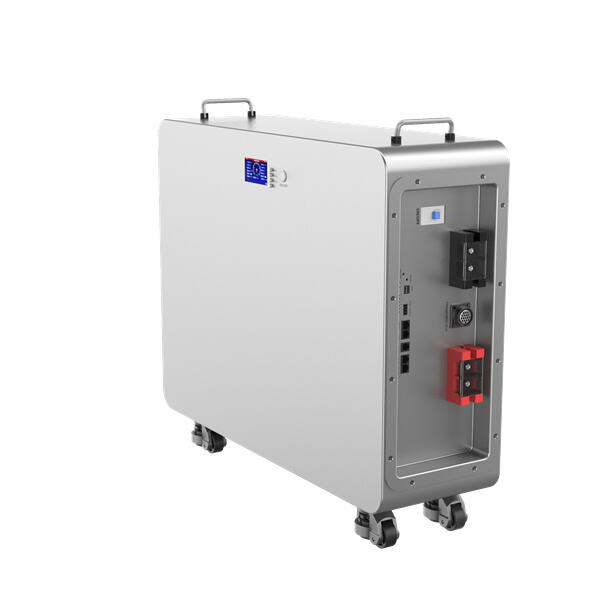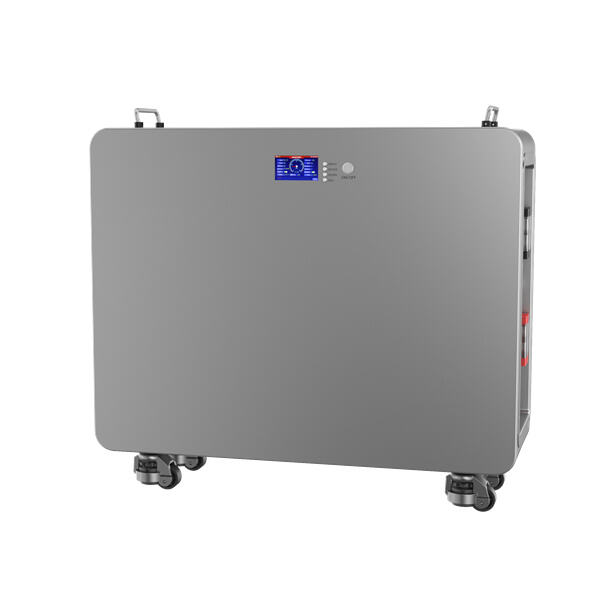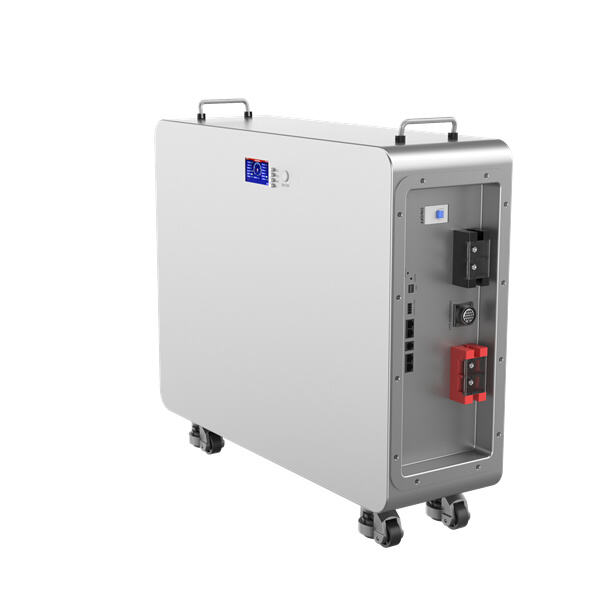On a global scale, the increased uptake in use of renewable energy sources means that viable storage solutions are more important and pressing than ever before. Stationary storage is a key puzzle piece for renewable energy, and by providing significant grid stabilization and flexibility benefits. Therefore, it helps to smooth out the renewable energy schedule and hence supporting growing interest in renewable power generation.
The market for stationary energy storage systems is expanding worldwide due to renewables gaining momentum and the need for more consolidated grid infrastructure. For the next few years, this growth trend is only expected to continue as we are looking at a global stationary energy storage market valuation to top $13.1 billion with 2024 upon us.
The cloud: Stationary energy storage systems have already transformed the way we generate, store and deliver power. Such systems provide a number of advantages to the grid, such as improved efficiency and reliability in power distribution, reduced energy losses for more efficient utilization of renewable energies.
Part of the benefit to stationary energy storage systems is that they can be used during off-peak demand hours and then released at peak times. It smooths out the ebbs and flows of supply and demand, making for a more stable grid. In addition to this, these systems can also act as backup power supplies in the event of an emergency and dramatically reduce downtime due to a lack of electrical feed.
Compared to these benefits, not only are stationary energy storage systems becoming increasingly competitive cost-wise but the grid operators and renewable energy developers have also started looking at them as such kind of resources. Given that battery technology and scale are certain to mature further in the ensuing years, it is almost a foregone conclusion that stationary systems will get cheaper yetITER vs. BP: The Disgrace of the Debate

The advantages provided by this through investing in stationary energy storage systems have implications for grid operators, businesses and households. This enables renewable energy generators to maximize output by storing surplus energy and eliminate the need for fossil fuel backups, ultimately leaning towards a wider use of renewables. This in turn can help decrease the greenhouse gas emissions and encourage sustainable energy practices.
Stationary energy storage systems save businesses and households money by charging from the grid when electricity is cheap (off-peak) and discharging back to the grid during peak times. This can provide huge cost savings in the long run and even help encourage renewable energy sources.
The effectiveness of these systems was improved and their efficiency too in recent years due to several advances that took place for the stationary energy storage technology. One such important innovation was the invention of advanced lithium-ion batteries that are much more compact, lightweight and longer-lasting compared to conventional lead-acid units. These have been central to driving down the price of fixed energy storage systems at the same time as increasing performance and longevity.

As more renewables enter the global energy mix, demand for stationary energy storage systems also is expected to grow significantly. This technology plays a central role in enabling the transition to a reliable, distributed, and low-cost renewable energy future.
Notable investment in stationary energy storage systems is expected to grow year-on-year into the 2020s as countries and corporations acknowledge their key role in achieving a low-carbon future. And as battery technology continues to improve and economies of scale expand, these systems will likely only get cheaper, indicating a brighter future for more sustainable and resilient energy management.

With the stationary energy storage market growing rapidly, it is important to keep up with some of the most important players and latest trends in this emerging market. Tesla is one of four major players in the sector; it also includes LG Chem, NEC and PanasonicSONNY TUMBELAKA / Contributor
The push in the stationary energy storage market now is toward modular systems, which can be scaled up or down according to need. This flexibility helps grid operators and renewable energy developers to build plants that changes with time as per the demand of this new kind odd features without any initial heavy investment.
In developing countries, there is a growing trend towards the deployment of stationary energy storage systems that require power grid balancing and smaller scale island-mode supply. While these regions will ultimately impact dynamism for residential stationary energy storage in the light of more efficient models, the long-term demand is likely to come from less-developed parts such as Africa and Southeast Asia.
Consider the future of renewable energy, and it is clear that stationary energy storage systems are set to be a crucial part of this transition - but what does this mean in terms various key players across the y ese market trends? Whether it be improving power delivery efficiency and reliability, waste reduction of energy or the large-scale deployment of renewable energies stationary ESS are a fundamental piece in this puzzle called global energy.
stationary energy storage systems made professionals fields production, business, after-sales services. offer customers efficient professional support 24 hours day. Meanwhile, provide long-term warranty each customer. offer custom-designed services based various needs clients best meet needs customers.
Avepower's main business involves energy storage automotive power. main products include home energy storage systems commercial industrial energy storage system, outdoor battery storage portable energy, power batteries, other such and so on.Avepower 5 series products, including than stationary energy storage systems models as well than 400 varieties spare parts accessories meet every customer's needs full specifications.
Avepower modern business integrates lithium battery product design, research development, manufacturing, stationary energy storage systems. We experienced RD team well as highly collaboration management team. We been awarded numerous international domestic quality certifications along import export certificates. We well-equipped battery pack RD production facility over 20000 square meters meet needs customers. We solve problems quickly.
stationary energy storage systems various certifications CE, UL, CB, RoHS, FCC, etcfactory accredited ISO9001, CE, SGS, as well as certificates. addition, we 100% quality check throughout production strictest supervision quality.